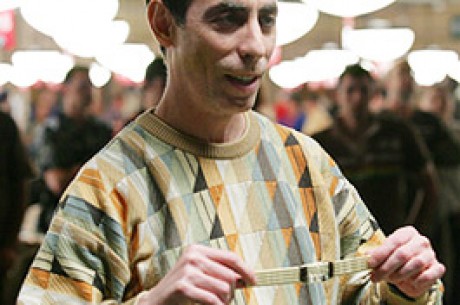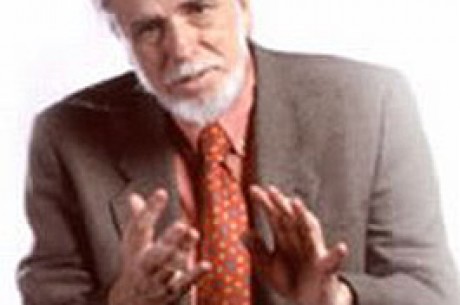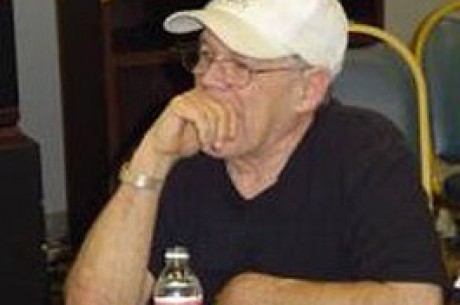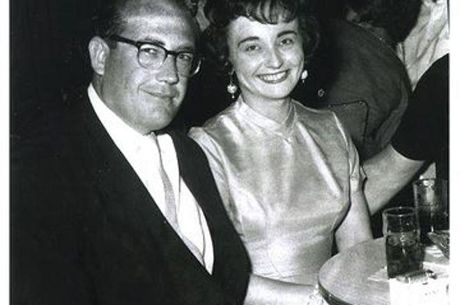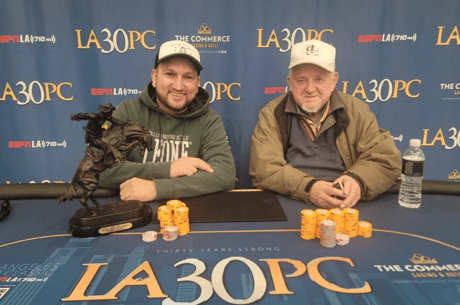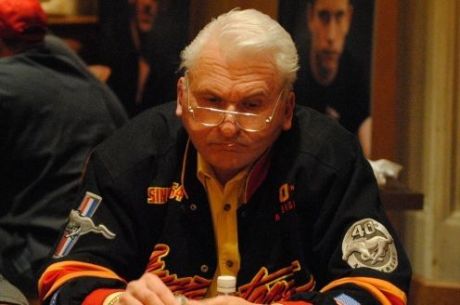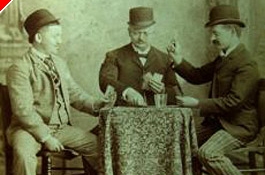Legends of Poker: David Sklansky
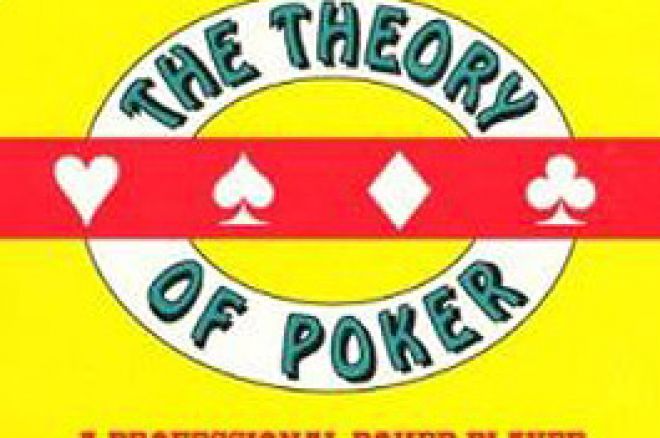
Nothing I write about David Sklansky is going to be as accurate (except statistics) as I would like, because David talks above my head so often. It's not that he tries to confuse his audience, but most of us who came into this world with the standard brain packaging between our ears just can't be expected to completely grasp what he is truly saying.
According to David, "At age 13, I believe I was better in math, science, puzzles, coming up with clever shortcuts, and logic, than perhaps half of those who went on to get physics prizes when they were 13 years old." Now I'm not sure how he knows this, but I'm not going to argue with someone that was doing calculus before he entered Teaneck High School (where he graduated in 1966).
In fact, by the sixth grade, his father was working with him to understand calculus. Says Columbia University Professor Irving Sklansky; "I was constantly working with him with math, although my wife didn't like it." Apparently, she had planned for David to be doctor, but while attending college, David had more fun
shooting pooland playing poker than thinking about a life in medicine. Like some of the other great poker players of our time, David was blessed to play in a game where the players discussed their actions and the outcome after each hand. Says David; "it made everyone think a lot about poker."
After graduating in 1970 from the Wharton School at the University of Pennsylvania, he moved back to Teaneck and took a job at Kwasha Lipton Group, an actuarial consulting firm in Fort Lee, but hated the routine. As many bored employees do, David found ways to occupy his time - such as using his calculator to figure out the odds on draw poker.
Sklansky had always loved math, and using his intellect to better understand card games and gambling was such a natural thing that heading to Las Vegas was an easy decision. Upon arrival, he found that his math abilities were immediately of great use not just at the poker tables, but in finding flaws in many of the local casino's promotions.
David found small mathematical expectation for sports bets, blackjack promotions, even big-six wheel events. Exploiting them became a game as well as a steady source of income. It wasn't long before others took notice of his abilities, and John Luckman, of the Gambler's Book Club, asked him to write a book about high-low split 7-stud. However, although David would indeed provide his insight to the game in Doyle Brunson's Super/System, he told Howard that he would prefer to do a book on hold'em.
By his own admission, David was not an expert at the game of hold'em, but he took a mathematical approach to the expectations of different starting hands and produced "groups" to guide new players with learning the game. The book sold well for over a decade, which certainly proves David to have been right about the coming popularity of hold'em. In the meantime, he wondered how long he could continue to beat the casinos at blackjack before being barred from every decent game in town.
The following year (all right, the same year, but publishing takes time) the world's first real magazine about gaming came out, titled gambling times. I don't know why they always used lower case letters, but there was nothing "lower" about the quality of information offered. In the inaugural issue (Feb. 1977) David wrote an article on "Getting the Best of It," and that has been his mantra since leaving New Jersey.
In summary, David explained that there was little need to make bets that have a negative expectation, unless of course you lose less by betting than by folding or calling. This concept, often lost on even expert players, is the basis of Sklansky's ability to be a lifetime winner at many games besides just poker. As he stated in the article, "If the pot offers 5-1 odds and you are only a 4-1 underdog you must call because you are giving up too much by folding." David continued to explain that it isn't necessary to have repeated trials to accept a bet, if you always get $6 to $5 on an even-money bet, you have earned 50 cents on each bet. You just have to "Keep on getting the best of it, and you will find your winnings have totaled the sum of your expectations." Money lost on bets like this (the 50-cent expectation that each wager theoretically pays) have become known at poker tables as "Sklansky Bucks." Personally, I have a lot of these "bucks"saved up at this point in my life, and hope to trade them in for cash at poker tables over the next few years.
David has had plenty of success in poker tournaments over the years, playing when time allowed. Although he does not have as many publicized wins as other players, he regularly plays in tournaments like the $1,000 weekly event at the Bellagio (which costs more to enter than many high-profile events at other casinos). He has won three gold bracelets at the World Series of Poker, and this past year (2005) was seen on TV beating a field of well-known poker authors at their own game in the Poker By The Book invitational event on the World Poker Tour. He also did well in the 2005 $25,000 Main Event, finishing 16th and cashing for $75,000.
Over the past thirty years, Sklansky has spent most of his time writing articles (gambling times, Poker Player, Card Player), books (a dozen, several with Mason Malmuth, and most notably the Theory of Poker), and overseeing his poker website. Most recently, David had his first "proprietary" casino table game approved by the Nevada Gaming Control Board for use in Nevada casinos.
David is still approachable at tournaments (where I have argued with him), and even on his website (where I have learned not to argue with him). His comments are often misunderstood by the masses, but he has turned me from a doubter to a follower.
He took a lot of heat recently after he stated on TV that he might have won a Nobel Prize had he pursued physics or economics (instead of gaming). Basing this statement on his mathematical abilities at the age of 13 with those of future Nobel winners at the same age may or may not be a realistic view of academia. However, I'm probably not academically astute enough to judge the statement fairly. I will say that his work in the field of gaming (both theory and probability) is far more advanced than any other author, and puts him into a very select group: one of the Legend of Poker.
Another item that seemed to draw a lot of comments recently involved Daniel Negreanu's "challenge" to play him in a heads-up match for between $100,000 and $500,000. Twenty-five years ago, Sklansky rated himself as the best seven-card stud hi-low player in world. He also rated himself as the forth best, all-around poker player in the world (when taking into account all games, short-handed and full ring, and also a player's overall poker conception). That's pretty heavy accolades for himself, but these days, he feels a bit differently.
In fact, in response to Negreanu's challenge, Sklansky stated that he felt Daniel's edge was probably 6-5, and wouldn't take the offer, which many in the poker world took to be less than courageous. I suppose a person with an ego bigger than their brain would jump at the challenge, but those who laughed at David for not accepting the bet just don't seem to understand what Sklansky has spent his entire adult life trying to teach us: Bet your money when you have the edge and you'll enjoy life by always "Getting the Best of It."
Ed Note: Check out our newest room - Poker Host. Sign up today, and play in three $5,000 Freerolls with top pros like Amir Vahedi, and Hoyt Corkins

